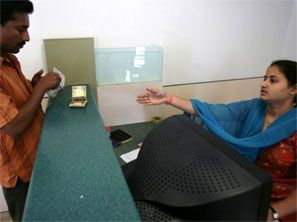The committee’s suggestion that existing commercial banks be allowed to hold payment banks as subsidiaries is also seen as unviable by RBI and the finance ministry.
The Union finance ministry and the Reserve Bank of India (RBI) have raised questions on viability and implementation of the recommendations made in the Nachiket Mor committee’s report. The panel had, among other things, suggested a new banking structure to foster financial inclusion. According to finance ministry sources, there is unease with the idea of non-banking companies getting the status of banks, without obligations like adhering to the cash reserve ratio and the statutory liquidity ratio. The Mor committee had suggested setting up two types of banks — payment banks and wholesale banks — besides talking about some convergence in regulations for banks and non-banking financial companies (NBFCs).
According to finance ministry sources, there is unease with the idea of non-banking companies getting the status of banks, without obligations like adhering to the cash reserve ratio and the statutory liquidity ratio. The Mor committee had suggested setting up two types of banks — payment banks and wholesale banks — besides talking about some convergence in regulations for banks and non-banking financial companies (NBFCs).
The committee’s suggestion that existing commercial banks be allowed to hold payment banks as subsidiaries is also seen as unviable by RBI and the finance ministry. The ministry believes this might not serve the purpose of financial inclusion, as NBFCs charge very high interest rates and might continue to do so even after being converted into banks.
Besides, the ministry also feels allowing such entities could be counterproductive, since many NBFCs are not regulated by the central bank. A source suggested banks should have a bigger role in financial inclusion than NBFCs, explaining: “RBI doesn’t have a well-regulated infrastructure to monitor NBFCs.”
The Mor committee, to suggest ways for comprehensive financial services to small businesses and low-income households, had given its report in January. It was then believed some of its advice would have been implemented by now. That has not happened.
Also, RBI was silent on implementation of the recommendations in its annual policy, announced early this month. This led to the speculation that the report might have been put on the back burner.
When the committee’s suggestions were made public, sections of its report were sent to relevant central bank departments for a feasibility study. According to sources, most of these departments found many of the recommendations difficult to implement.
RBI had also set up a panel of general managers to vet the report and some members of the Mor committee had presented their report before this panel. According to sources, the general managers’ committee, too, was little excited; it felt the suggestions were theoretical in nature and would face challenges in implementation.
According to sources, the general managers’ committee, too, was little excited; it felt the suggestions were theoretical in nature and would face challenges in implementation.
Interestingly, even some members of the Mor committee were not impressed with the recommendations. Two members — Axis Bank Managing Director & Chief Executive Officer Shikha Sharma and Bank of Baroda Chairman & Managing Director S S Mundra — found these too ambitious.
“Looking at the enormity of the task, more particularly in low-density rural areas, and the need to support physical and virtual infrastructure vis-à-vis their present state, the timeline looks pressing,” Sharma and Mundra had told Mor in their comments. They suggested January 2018, and not January 2016, would be a more “realistic and implementable” target date.
On the proposal of payment banks to provide payment services and deposit products to the target segment, the bankers felt this would not help achieve the desired level of financial inclusion.
Hitting hurdle
Highlights of the Nachiket Mor panel’s report
- NBFCs should play a larger role in financial inclusion
- Two sets of new bank structure proposed — payment banks and wholesale banks
Payment banks
- Primary role should be providing payment and deposit services
- Allowed to hold a maximum of Rs 50,000 as balance from each customer
- Banks be allowed to have payment banks as susbidiaries
Wholesale banks
- Primary role should be lending, and not retail deposit services
- To be allowed as business correspondents for banks
- Partial convergence of NBFC and bank regulations










